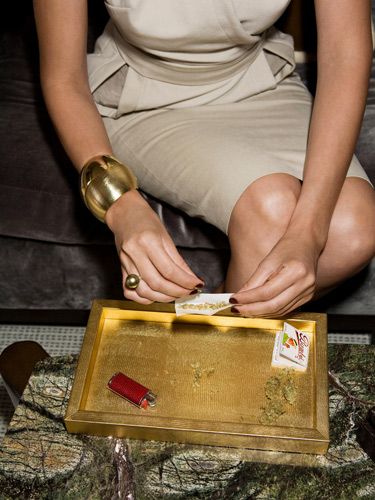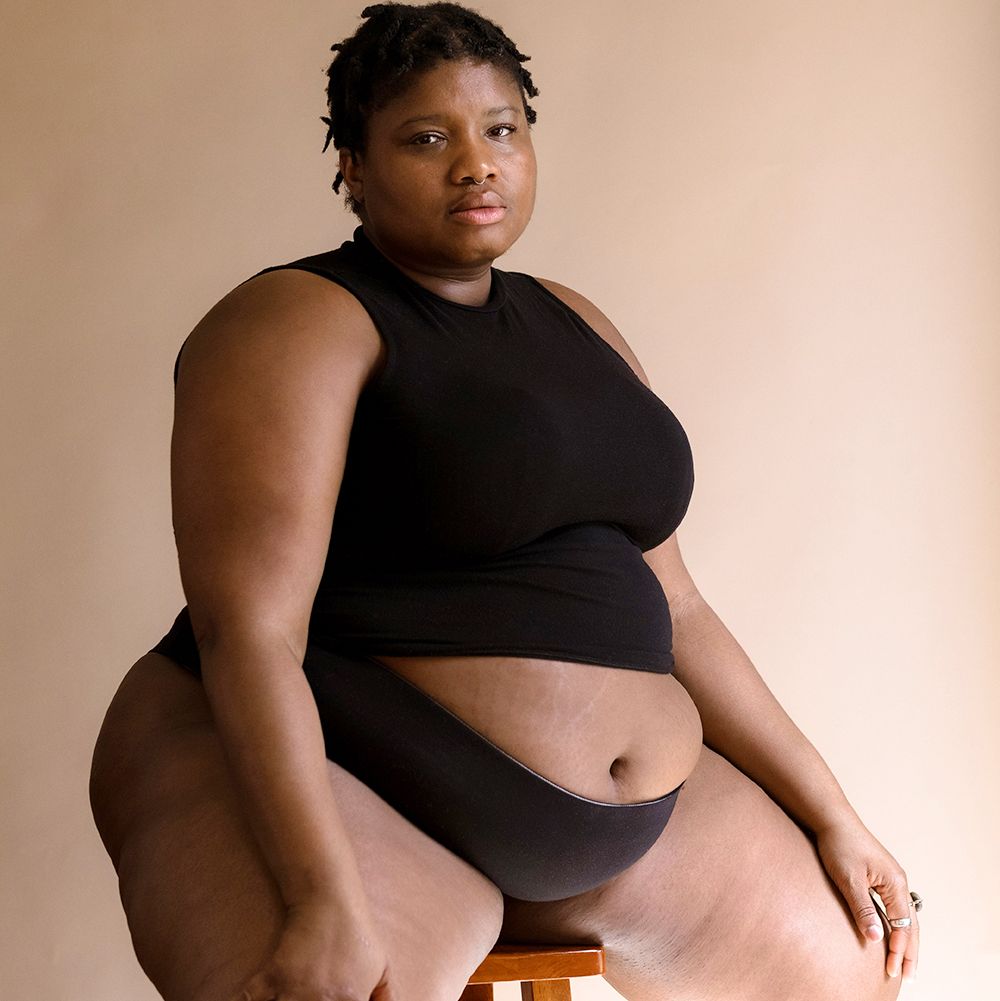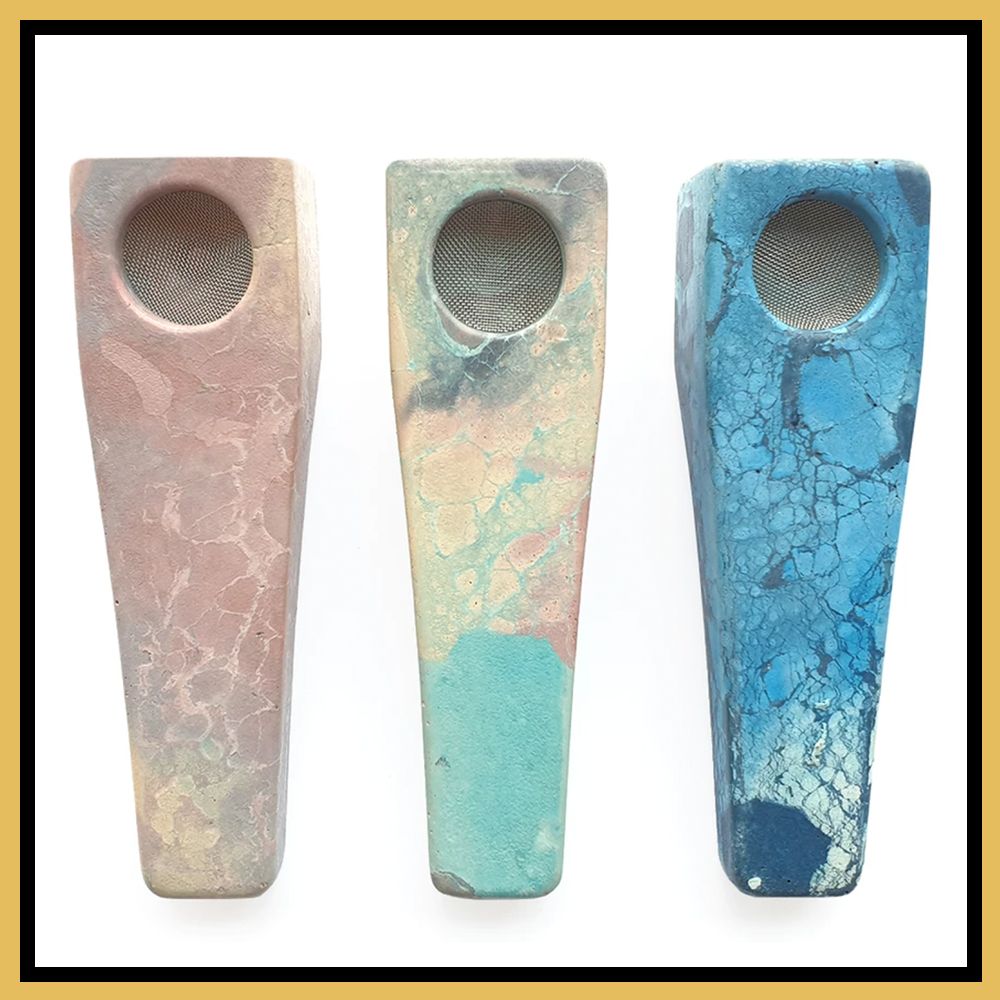Stiletto Stoners
They've got killer careers and enviable social lives. They're also major potheads. Why are so many smart, successful women lighting up in their off-hours?

Jennifer Pelham* kicks off her black Marc Jacobs pumps, slips out of her trim Theory blazer, and collapses on the couch. The 29-year-old corporate attorney for one of Manhattan's top law firms has just clocked another 12-hour day, and though it's over, she's having a hard time shaking off her frustrations. (A partner had eviscerated the contract she'd drafted, then left before Pelham had a chance to explain herself.) Still distracted, Pelham orders dinner—sushi, as usual—then reaches for a plastic orange prescription bottle standing on the corner of her coffee table alongside a glass pipe and blue Bic lighter, just as the cleaning lady left them. She twists off the cap, pinches off a piece of the fragrant green bud inside, gingerly places it in the bowl of the pipe, and lights up. Over the next 30 minutes, she takes three deep drags, enough to drown out the noise whirring in her head. Then she eats.
"I hate the term pothead—it connotes that I'm high 24/7, which I'm not," Pelham says, wincing. "I don't need it to get through my day. I just enjoy it when my day is over." Her nightly ritual costs only $50 a month, a pittance compared with the cost of her monthly gym membership or a Saturday night out with her fiancé, an investment banker, who occasionally smokes with her. At 5'4", slim and athletic—she ran three miles a day while in law school—Pelham insists that pot is the ideal antidote to a hairy workday: It never induces a post-happy-hour hangover and, unlike the Xanax a doctor once prescribed for her anxiety, never leaves her groggy or numb. "Look, every female attorney I know has some vice or another," Pelham shrugs, tucking her long brown hair behind her ears, her 3-carat cushion-cut engagement ring catching the light. "It's really not a big deal."
Most of us know someone like Jennifer Pelham, a balls-to-the-wall career animal whose idea of decompressing after a grueling day isn't a glass of Chardonnay but a toke (or three) of marijuana—not just every now and again, but on a regular basis—the type who stashes a pack of E-Z Wider rolling paper in the silverware drawer or keeps a pipe at the ready next to a pile of bills. According to a recent study by The Substance Abuse and Mental Health Services Administration, an estimated 8 million American women smoked up in the past year—a lowball figure that reflects only those willing to cop to it. Among them is the upper-middle-class Pottery Barn set: One in five women who admitted to indulging in the previous month lives in a household earning more than $75,000 a year. They cut a wide swath across the professional spectrum, including lawyers, editors, insurance agents, TV producers, and financial biggies, looking nothing like the blotto hippie teens of Dazed and Confused or the unemployed, out-of-shape schlubsters who are a staple of the Judd Apatow canon. By all outward appearances, they are card-carrying, type A workaholics who just happen to prefer kicking back with a blunt instead of a bottle.
"I love to have a glass of wine now and again, but going out and downing sugary cocktails isn't fun for me. And drinking is so much more expensive," says Debbie Schwartz, a 28-year-old reality-show production manager who recently moved to New York from Los Angeles. Her job is relentless—15-hour days spent coordinating a million moving pieces, managing expenses, setting production schedules, and mollifying gimme-gimme talent. Her company just slashed her budget in half, which has left Schwartz scrambling to cut costs so that she won't have to lay off employees. After work, she can't think of anything she'd rather not do than throw on a pair of heels and some makeup to hit the local bars. "I'll go to the gym for an hour, then come back home and smoke a joint while I listen to jazz and read a book—I just finished The Fountainhead. It's my moment for myself before I have to get up and do it all over again tomorrow. It's my bubble bath," Schwartz explains. She doesn't keep her illicit habit under wraps, either. There's no need, since several people in her office use the same "dealer"—a colleague who takes orders for their department.
If Schwartz's example proves anything, it's how ridiculously easy it is to procure pot these days. In some cities, it's as simple as ordering a pizza, delivered right to the door.
-->
*Names have been changed
Stay In The Know
Get exclusive access to fashion and beauty trends, hot-off-the-press celebrity news, and more.

Sound reckless? Not when you consider that marijuana has already been decriminalized in 13 states. In cities like Boston and Denver, small-time pot busts are minor offenses on a par with parking violations; first-time offenders earn a token fine—$100 or so—and a talking-to from law enforcement. In California, where the distribution of marijuana for medicinal purposes was legalized in 1996, some 31,000 residents carry cards that make purchasing locally grown weed from any of the state's estimated 500 dispensaries as easy as filling a prescription at the local pharmacy. Abuse of the system is rife: "Everybody has a friend who has a card," says Gabrielle Doron, a 29-year-old L.A.-based event planner. "My friend will call me up and say, 'I'm going to the store, you want anything?' It's just not very hard to get."
Nor does getting high carry the same social stigma it did in the Reagan-era "Just Say No" heyday—back when smoking a joint was the de rigueur "special episode" of countless family-friendly sitcoms. "When I was in high school, there were certain behaviors associated with pot: promiscuity, not being career-minded, not wanting a relationship," says Schwartz. "My mom told me that people would lace pot with PCP and that I'd get hooked, or that I'd get the munchies and get fat." All baloney, Schwartz learned once she became a bona fide pothead eight years ago. She even managed to drop 25 pounds despite smoking regularly. Her secret: She eats a healthy meal right before she smokes, which seems to curb her appetite. "The munchies are absolutely something you don't have to get into," Schwartz maintains. "Of course, the desire to eat is always there. But even when I'm not smoking, I still want a cupcake."
Another myth debunked by pantsuit-clad pot lovers: that devotees hole up in their apartments in a thick cannabis stupor, blowing off friends and social commitments. "I almost never smoke alone," says 28-year-old Gina Bridges, a grants administrator for a Seattle-based nonprofit. Bridges sometimes hosts low-key dinner parties with her husband and friends, punctuated by dessert and bong hits. (She stopped smoking when she recently became pregnant.) "Alcohol makes you feel more social, but weed works in a different way. You're quieter, more contemplative. My friends and I get more in depth about specific issues," she says. What's more, Bridges says sex was much better when she was high, helping her to shed her inhibitions. "Sometimes I'd wonder, Am I doing the right thing? Am I getting him off? When I smoke, it's all about me. I'm not worried so much about what he's thinking. And it helps him enjoy it more, too, because I'm not psyching myself out," she says.
But there are caveats. Some health experts say long-term pot users, like cigarette smokers, are at increased risk for lung and neck cancer. (Actual evidence proving a causal link between cannabis and cancer is scant, however.) And thanks to technological advances in cultivating weed—hydroponics, genetic manipulation—the strains available on the market today can be five times as potent as they were in the '70s and that much more addictive, according to antidrug crusaders. (The addictiveness of marijuana is a highly controversial subject; alcohol boasts a higher rate of addiction than cannabis.) Furthermore, while it is the most widely used controlled substance in the country, marijuana remains illegal in the eyes of the federal government—in the same class as LSD or heroine—regardless of state laws that regulate its usage. More than 90 percent of Fortune 500 companies, including American Express, General Electric, and Goldman Sachs, subject job applicants to drug tests that, among other things, probe for THC, the psychoactive component in pot. Get caught with it in your system, and it's game over.
Last year, Rachel Murphy, a 36-year-old entertainment industry publicist in New York and mother of a toddler, temporarily gave up her nightly weed habit a week before taking a required urine test to secure a life-insurance policy. (She only smokes once her daughter is in bed.) Hours after the exam, she lit up. Two days later, the clinic called to say there was a glitch in the test (unrelated to drugs) and that she would have to retake it. "I was totally back on this bandwagon of smoking a lot, and I didn't want to be bothered to have to do this again," Murphy says. With three days until the test, she frantically called her cousin, an insurance agent herself, who advised Murphy to buy Ready Clean, a 16-ounce fruit punch that claims to flush out the THC in urine if ingested within 48 hours of a drug test. Rachel paid $50 and had the drink overnighted. "My husband was standing over me the morning of the test saying, 'Drink! Drink! Chug it!' I was like, 'I can't drink that fast.' He said, 'Rachel, this is serious shit. We need life insurance—we have a baby—and we can't get it because my wife smokes pot?'" One agonizing week later, Murphy got the word that she'd passed her urine test.
The white-knuckle experience became a major source of tension in her marriage, Murphy concedes, so she stopped smoking for a while. But it didn't last. "I'm sorry, but I have a stressful job, I have a baby. I need to unwind somehow, and I don't really like to drink," she grumbles. So, while hanging out with married friends, most of whom are also parents, Murphy will occasionally join in when one pulls out a baggie and starts prepping a bowl. "I got kind of uptight," she says of her weed-free phase. "And my husband was like, 'Actually, I liked you better when you smoked.'"
-
 Michelle Obama Elevates Baggy Cargo Pants With a $3,700 Tote
Michelle Obama Elevates Baggy Cargo Pants With a $3,700 ToteThe former First Lady elevated her casual outfit with sleek accessories.
By Amy Mackelden
-
 Youn Yuh-Jung Didn't Want to Make Another American Movie—Then Came 'The Wedding Banquet'
Youn Yuh-Jung Didn't Want to Make Another American Movie—Then Came 'The Wedding Banquet'The Oscar winner shares why the LGBTQ+ rom-com hit close to home and the message she hopes it sends to ''conservative'' Koreans.
By Quinci LeGardye
-
 The 17 On-Sale Beauty Finds I’m Stocking Up on Ahead of Summer
The 17 On-Sale Beauty Finds I’m Stocking Up on Ahead of SummerFrom glowy blushes to the all-time best sunscreen.
By Brooke Knappenberger
-
 What Makes an Olympic Moment?
What Makes an Olympic Moment?In the past it meant overcoming struggle...and winning. But why must athletes suffer to be inspiring?
By Megan DiTrolio
-
 Jessamyn Stanley on Self-Acceptance and the Realities of American Yoga
Jessamyn Stanley on Self-Acceptance and the Realities of American YogaIn her new book, 'Yoke,' the yoga teacher and entrepreneur explores American yoga's link to capitalism, white supremacy, and more.
By Rachel Epstein
-
 Simone Biles on Her GOAT Leotard: Don't Be Ashamed of Being Great
Simone Biles on Her GOAT Leotard: Don't Be Ashamed of Being GreatThe world's greatest gymnast shares how she takes care of her mental health, the road to Tokyo, and the story behind her epic new leotard style.
By Megan DiTrolio
-
 Won't Call the Midwife
Won't Call the MidwifeWith high rates of maternal mortality and coercion in hospital settings, more American women are exploring childbirth without any medical assistance whatsoever. The Free Birth Society provides community, resources, and validation for these convention buckers. But experts warn that choice comes at the expense of safety.
By Rebecca Grant
-
 Make Your Micro Wedding All About the Vows
Make Your Micro Wedding All About the VowsNo one wants their lovefest to be a super-spreader event, but they do want it to be extra special. One "vow whisperer" shares how she helps couples—some of them first responders—tie the knot in these troubled times.
By Maria Ricapito
-
 The 24 Best Gifts for Weed Lovers That Aren't Corny
The 24 Best Gifts for Weed Lovers That Aren't CornyNo corny pot leaves or dumb puns—promise.
By Cady Drell
-
 Sense and Social Distancing
Sense and Social DistancingIsolated, socially distant, and unable to touch anyone: The single life under COVID-19 is eerily Jane Austen-esque.
By Jessica M. Goldstein
-
 A YouTube Star Revealed She "Rehomed" Her Adopted Son With Autism
A YouTube Star Revealed She "Rehomed" Her Adopted Son With Autism"Do I feel like a failure as a mom? Like, 500 percent."
By Korin Miller